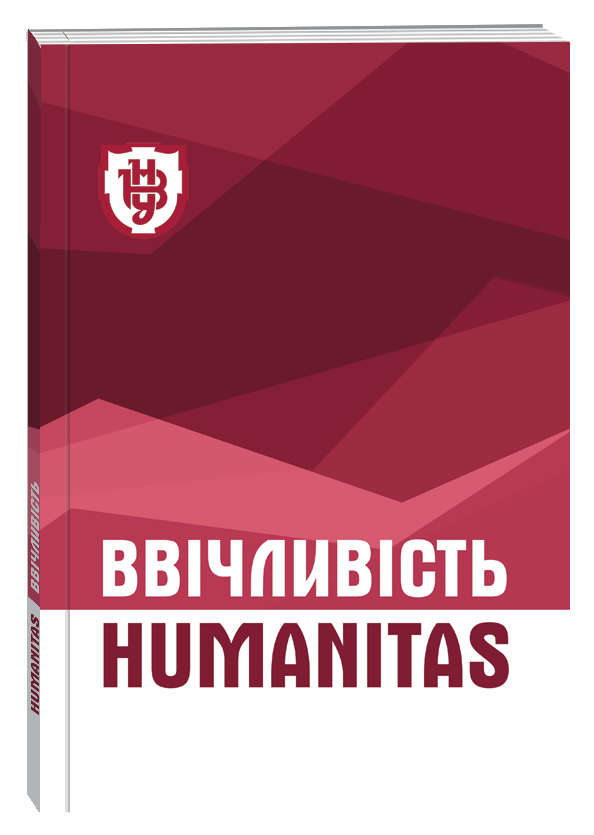ДОСЛІДЖЕННЯ СУЧАСНИХ ТЕНДЕНЦІЙ ВПРОВАДЖЕННЯ ІНСТИТУТУ НАСТАВНИЦТВА В УКРАЇНІ
DOI:
https://doi.org/10.32782/humanitas/2022.5.11Ключові слова:
наставництво, діти-сироти, діти, позбавлені батьківського піклування, соціальна роботаАнотація
У статті розглянуто становлення інституту наставництва в Україні, як однієї із ефективних форм допомоги дітям-сиротам та дітям, позбавлених батьківського піклування. Метою статті є аналіз сучасних тенденцій впровадження інституту наставництва в Україні. Методологію дослідження склали комплекс методів теоретичного (аналіз, синтез, узагальнення, інтерпретація) та практичного (експертне онлайн опитування за допомогою Google Forms) дослідження. В процесі дослідження було проаналізовано наставництво як технологію соціальної роботи, означено напрями впровадження наставництва в Україні на основі опитування фахівців центрів соціальних служб. Зауважено, що в сучасних умовах нагальною постала потреба у пошуку альтернативних форм допомоги дітям-сиротам та дітям, позбавлених батьківського піклування, однією з яких може стати наставництво. Адже саме наставництво дає змогу отримати підтримку авторитетної дорослої людини, яка здатна допомогти дитині краще адаптуватись до самостійного життя. Аналіз результатів проведеного дослідження продемонстрував, що сьогодні існують певні труднощі у впровадженні інституту наставництва (мала кількість кандидатів, невірна мотивація потенційних кандидатів, низький рівень поінформованості населення щодо наставництва тощо) та визначено перспективи розвитку в майбутньому. Близько 50% респондентів чули про наставництво, розуміють його суть, проте лише 13% респондентів потенційно готові стати наставниками. Авторами доведено, що наставництво – це спланована діяльність наставника по відношенню до підопічної дитини-сироти або дитини, позбавленої батьківського піклування, яка спрямована на підтримку її якісного переходу в доросле самостійне життя, допомогу в набутті знань, життєвих навичок, нового мислення та свідомості.
Посилання
Bozeman B. Toward a usefultheory of mentoring: A conceptual analysis and critique. Administrative and Society. 2007. № 39 (6). Р. 719–739.
Адаховська Н.С. Наставництво як форма захисту дітей-сиріт та дітей, позбавлених батьківського піклування. Часопис цивілістики. 2017. №27. С. 28−31.
Байдарова О. О. Наставництво як форма соціальної підтримки випускників інтернатних закладів. Вісник Київського національного університету ім. Тараса Шевченка. Серія: Психологія. Педагогіка. Соціальна робота. 2012. №3. С. 64–67.
Балухтіна О. М. Наставництво для дітей-сиріт та дітей, позбавлених батьківського піклування в Україні: шляхи оптимізації процесу. Науковий вісник Ужгородського університету. Серія : Педагогіка. Соціальна робота. 2021. Вип. 1. С. 19–23.
Грицанюк В. В. Наставництво як форма підготовки дітей-сиріт до самостійного життя. Соціальна робота в Україні: теорія і практика. 2016. № 3-4. С. 44–51.
Кобилянська Л. І. Розвиток наставництва як форми соціальної підтримки дітей-сиріт та дітей, позбавлених батьківського піклування, в Україні. 2017. С. 50–65. URL: http://www.znpkp_sp_2017_28_7%20(1).pdf (дата звернення: 23.11.2022).







